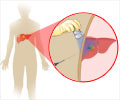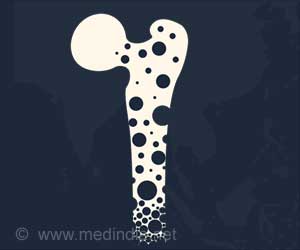Research has indicated that the incidence and mortality associated with hepatocellular carcinoma (HCC) have been increasing worldwide

A research article published on February 21, 2011 in the World Journal of Gastroenterology addresses this question. The authors hypothesized that obesity influences the time to onset of HCC related to HCV infection, which is reflected in the patient's age at onset. To test this hypothesis, they investigated the relationship between body mass index (BMI) and lifestyle factors and age at onset of HCC in HCV-infected patients.
The research showed that the underweight patients (BMI < 18.5 kg/m2), tended to be older at HCC onset than patients within the normal weight range (BMI 18.5 kg/m2).
The results suggest that achieving an adequate body weight along with a reduction of alcohol intake in patients with chronic hepatitis C could help prevent hepatic carcinogenesis.
Source-Eurekalert














